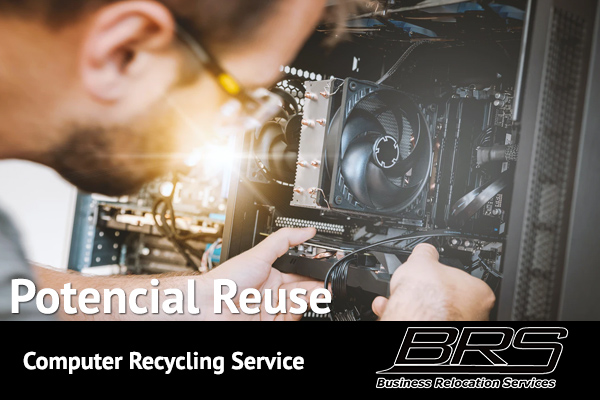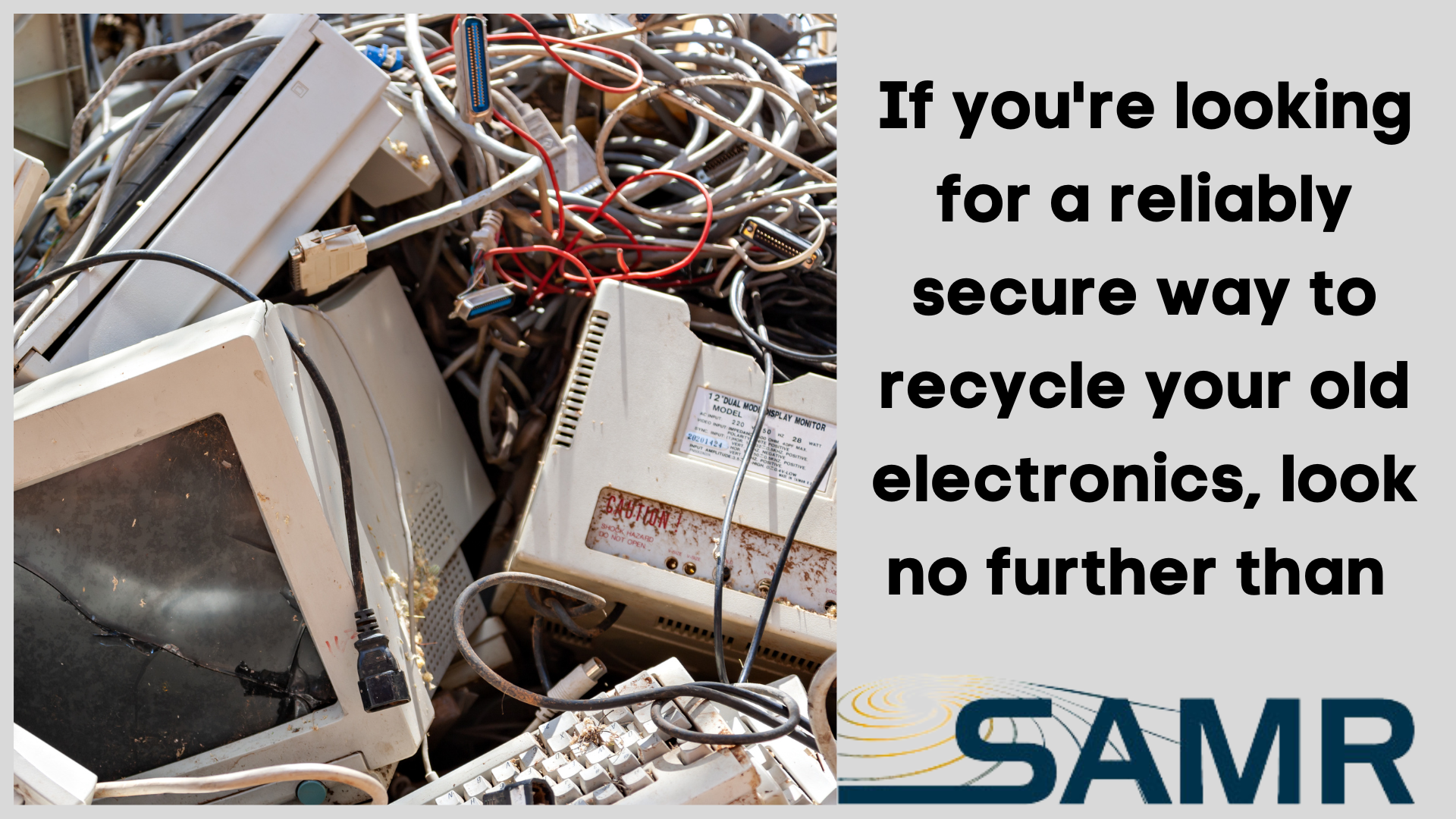Secure Disposal: The ABCs of Computer Recycling
Secure Disposal: The ABCs of Computer Recycling
Blog Article
Lasting IT Solutions: Trustworthy Computer Recycling Solutions
As modern technology continues to advance at a quick pace, the issue of digital waste, or e-waste, has ended up being a pushing problem for both companies and people alike. The improper disposal of computers and various other digital gadgets not only contributes to ecological deterioration, yet also positions considerable threats to human health. Because of this, the requirement for reliable computer system reusing solutions has actually never ever been even more paramount. In this conversation, we will certainly discover the ecological influence of e-waste, the advantages of accountable computer recycling, exactly how to pick a trustworthy recycling service, the reusing process for computer systems and digital tools, and the duty of federal government regulations in e-waste management. Join us as we reveal the sustainable IT solutions that can assist us navigate the complexities of digital waste in a trustworthy and accountable fashion.
The Ecological Effect of E-Waste
The inappropriate disposal of digital waste, frequently referred to as e-waste, has significant environmental ramifications. E-waste describes disposed of electronic tools such as smartphones, tvs, and computers (computer recycling). These tools include unsafe products such as lead, mercury, cadmium, and brominated fire retardants, which can be hazardous to both human health and the setting if not appropriately taken care of
When e-waste is incorrectly dealt with, it usually winds up in land fills or is blazed, launching toxic materials into the water, air, and dirt. The launch of these dangerous products can infect groundwater, pollute the air, and add to soil destruction, posing major health dangers to close-by areas and communities.
In addition, the improper disposal of e-waste likewise contributes to the exhaustion of natural deposits. computer recycling. Numerous digital tools include useful metals like gold, silver, and copper that can be recuperated and recycled if properly recycled. When e-waste is not reused, these important sources are lost, and the demand for new raw materials boosts, leading to boosted mining activities and further environmental deterioration.
To reduce the environmental influence of e-waste, correct recycling and disposal approaches have to be used. This consists of the liable collection, taking apart, and recycling of electronic devices to recover valuable products and make sure the risk-free management of harmful compounds. Executing efficient e-waste administration methods is important to safeguard the environment, conserve sources, and promote a lasting future.

Advantages of Liable Computer Recycling
Properly reusing computer systems provides a multitude of benefits, including environmental conservation and resource conservation. Accountable computer system recycling not just assists prevent digital waste from ending up in land fills, but it also minimizes the need for basic materials and energy in the manufacturing of new devices.
Among the most substantial benefits of responsible computer system recycling is the preservation of the environment. When electronic waste is improperly taken care of, it can release unsafe substances such as lead, mercury, and cadmium right into the soil and water, positioning a threat to environments and human health. By recycling computers, these harmful materials can be securely removed and dealt with, lessening the threat of air pollution.
One more advantage is resource preservation. Computers include valuable materials like gold, copper, light weight aluminum, and silver, which can be recuperated and reused through reusing procedures. By extracting and reusing these products, the need for mining new sources is decreased, saving natural deposits and reducing the ecological influence of resource removal.
Moreover, liable computer system recycling helps to minimize energy usage. Manufacturing brand-new computers needs a substantial quantity of energy, from the removal of resources to the setting up procedure. By recycling computer systems and reusing their components, the energy-intensive production procedure can be stayed clear of, bring about a reduction in greenhouse gas exhausts and an extra sustainable use energy sources.
Just How to Choose a Trustworthy Computer System Recycling Solution
When picking a computer system reusing service, it is vital to take into consideration a couple of crucial variables to make sure that you pick a trustworthy and reputable service provider. Firstly, it is vital to validate if the recycling service follows proper environmental guidelines and techniques. A reputable supplier will have certifications and accreditations that demonstrate their commitment to responsible recycling. Search for qualifications such as R2 (Responsible Recycling) or e-Stewards, which guarantee that the recycling you could try these out procedure satisfies strict requirements for ecological security and data protection. Secondly, inspect if the solution offers secure data devastation. Data security is a crucial concern when reusing computers, as sensitive information kept on old tools can be at risk to theft or abuse. A credible recycling solution need to have safe and secure information destruction protocols in area, such as data wiping or physical devastation of storage space gadgets. In addition, consider the solution's track record and track record. Look for reviews or testimonials from previous consumers to gauge their degree of client satisfaction and dependability. Finally, take into consideration the service's openness and liability. A reliable provider ought to have the ability to offer thorough information about their recycling procedure, including how they manage harmful products and ensure proper disposal. By thinking about these variables, you can pick a computer system reusing service that is ethical, reputable, and eco responsible.
The Recycling Refine for Computer Systems and Digital Gadgets
To ensure liable disposal and reduce environmental influence, comprehending the recycling process for computer systems and digital devices is crucial when choosing a trustworthy recycling solution. The recycling process for these devices generally entails a number of stages.
Firstly, the tools are collected from people, organizations, or drop-off factors. This collection process may entail transport logistics and protected handling to shield the delicate data had within the gadgets. As soon as accumulated, the gadgets are arranged based on their type, such as smart devices, desktop computers, or laptops.
After sorting, the tools go through a comprehensive information destruction process to guarantee that any kind of sensitive or personal info is permanently removed. This action is vital to shield the personal privacy and safety and security of individuals and organizations. Information damage methods may include wiping, degaussing, or physical damage of the storage space media.
Next, the devices are disassembled right into their individual components. This permits the separation of various materials, such as plastics, metals, and circuit boards. These products are after that sent out to specialized recycling facilities for additional processing.
The recycling centers use various techniques to extract important products from the electronic waste. These materials can be reused or repurposed in the manufacturing of new products. The remaining waste is disposed of in an ecologically accountable manner, adhering to regulative standards.
The Function of Government Regulations in E-Waste Administration
Government policies play a vital function in the efficient administration of e-waste. With the constant growth of the electronic devices market and the enhancing issue for environmental sustainability, the need for proper disposal and recycling of electronic waste has become more evident. Government policies help to ensure that e-waste is managed in a sustainable and responsible fashion.
One of the primary Source roles of federal government policies is to set criteria and guidelines for e-waste management. These laws define the proper methods for collection, transport, and recycling of electronic waste. By establishing these requirements, federal governments can guarantee that e-waste is dealt with in a way that minimizes its influence on the environment and human health and wellness.
This includes applying take-back programs, where manufacturers are liable for gathering and recycling electronic waste from customers. These laws help to shift the worry of e-waste management from the specific consumer to the industry, making sure that digital waste is handled in an extra lasting way.

Conclusion
To conclude, it is vital to think about the environmental effect of e-waste and choose a reliable computer recycling service to properly get rid of electronic devices. By complying with government policies and involving in appropriate reusing procedures, we can reduce the unfavorable impacts of e-waste on the atmosphere and promote a much more lasting future.
In this discussion, we will certainly check out the environmental impact of e-waste, the benefits of liable computer recycling, exactly how to select a reliable recycling solution, the recycling important source procedure for computer systems and electronic devices, and the role of federal government policies in e-waste administration. Computers have beneficial materials like gold, silver, copper, and light weight aluminum, which can be recovered and reused with recycling procedures.In addition, liable computer system recycling helps to reduce power consumption. Information safety is a crucial issue when reusing computers, as sensitive details saved on old tools can be at risk to theft or misuse. By taking into consideration these factors, you can select a computer system recycling service that is ethical, dependable, and environmentally liable.
Report this page